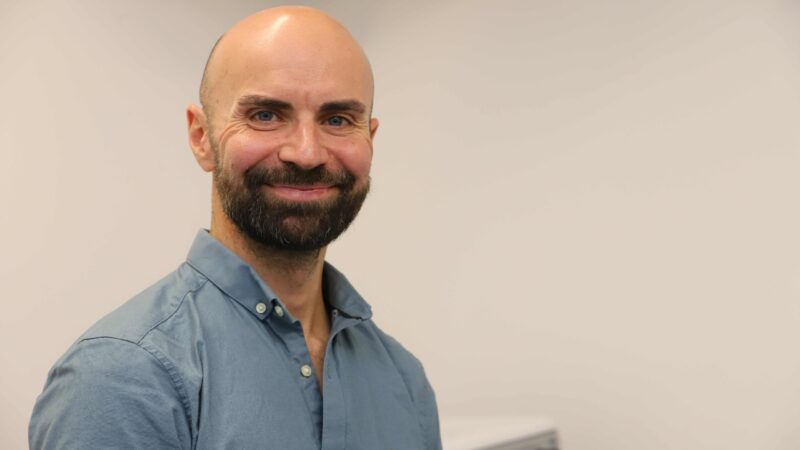
Stephen works within the Southend West Central Primary Care Network (PCN) which is made up of five GP practices, allowing him to provide care to patients across several of these local surgeries in Southend.
Here, Stephen explains what first contact physiotherapists can do and why it’s such a positive change to be part of the wider GP team:
“First contact physiotherapists (FCP) work in GP practices. Our role is to assess, diagnose, and manage patients holistically with musculoskeletal disorders. This can include things like lower back, neck, shoulder, elbow, wrist/hand, hips, knee or ankle pains of varying conditions. We assess patients with acute injuries such as whiplash associated disorders, fractures, ligamentous and tendon injuries, or acute spinal pain to patients who have had their symptoms much longer such as osteoarthritis of the knee.
“Our scope has broadened in recent years to help people who want to lose weight, become more physically active, reduce fear/risk of falling or even help people who may need input regarding their mental health or improving their social circumstances. We also have additional skills that enable us to provide treatments such as steroid injections or even prescribe analgesia.
I recently helped a patient who had been struggling with carpal tunnel syndrome (painful wrist/hand with tingling and numbness) which was impacting her ability to hold her baby. After fully assessing the patient and ensuring the symptoms were not related to another condition, I followed the current Getting It Right First Time (GIRFT) pathway and offered her treatment which resolved the majority of her symptoms. Normally, patients only require one appointment and are provided with enough support and information for them to self-manage their condition.
“The first contact nature of the service means that patients see us instead of the GP, as we are the most appropriately skilled professional to help with these types of health concerns. So, patients have direct access to ‘the right person, in the right place, at the right time’.
“Many patients just need advice and exercises. When more help is needed, first contact physiotherapists have access to the same investigations and referral pathways as GPs. If ongoing physiotherapy is needed, or a more specialist opinion required, we can refer patients onto secondary care.
“Patients benefit from seeing a specialist quickly. Another benefit is that by having a physiotherapist see patients, it frees up GPs to be able to focus on patients with complex care needs. On average, a doctor will see 30 – 40% of musculoskeletal conditions a year¹).
Stephen is proud of the difference his role makes.
“The most fulfilling aspect of the role is the fact that I have an opportunity to positively influence a person’s health. I can help them find the light at the end of tunnel. Knowing I can help someone to recover in an aspect of their life provides enormous satisfaction.”
Get the care you need quicker
Lots of work is underway to help people get quicker, easier access to important NHS healthcare services in mid and south Essex. This includes helping people to access a range of services without needing to see their GP first.
Find out moreYour GP surgery team is made up of a range of healthcare professionals with the expertise to help you with your specific health needs.
Your GP team¹ https://pmc.ncbi.nlm.nih.gov/articles/PMC6478452/